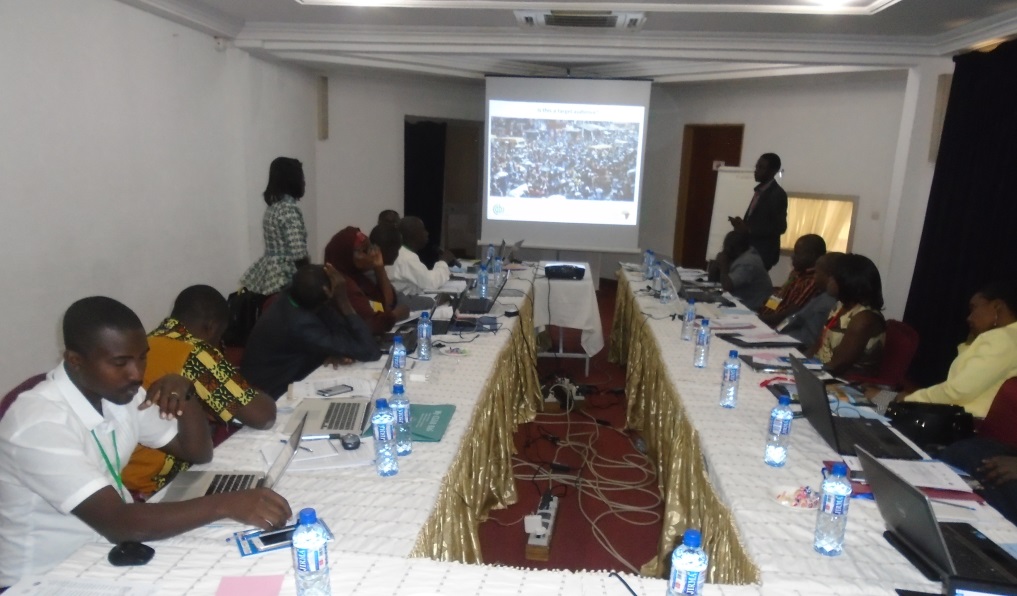 James Watiti delivering a presentation at the workshop
James Watiti delivering a presentation at the workshop
Poor translation of scientific and technical research outputs is hindering the achievement of development goals. Appropriate communication language and easily understood formats which can then be adopted by farmers is key.
To address this challenge, CABI helps facilitate the use of scientific knowledge and expertise in solving problems in agriculture and the environment. Through one of its flagship projects, the Africa Soil Health Consortium (ASHC), CABI provided communication training to scientists and technical staff of some project partners at a workshop in Ouagadougou.
The three-day workshop, organized by the Association of Church-based Development NGOs (ACDEP), brought together staff working on the AGRA West Africa Rice Project from Ghana, Burkina Faso Niger and Mali. The objective of the workshop was to equip participants with basic skills in developing appropriate communication materials from technical information they produce in order to meet the needs of varying audiences. This is to ensure that information on best practices is made available, accessible and usable to actors on various levels.
Speaking at the opening of the workshop, the Project Manager for the West African Rice Project, Dr Mathias Fosu emphasized the importance of developing these information materials as they go a long way to communicate best practices to farmers and also serve as means of documenting key project achievements. Speaking on the importance of the workshop, the head of Farmer Solutions at AGRA, Rebbie Harawa said, “This fits into AGRA’s goal of reaching 9 million farmers in its 2017 – 2021 strategy which can be achieved only through effective communication delivery.” She further expressed AGRA’s gratitude to CABI for assisting in the process.
The training was interactive and involved practical activities that encouraged facilitators and participants to work together. Participants were first trained on key communications concepts such as; audience definition and segmentation, effective messaging, language versus audience analysis, appropriate formats and medium/channel selection, after which both participants and facilitators worked together to create some sample communications materials.
CABI’s ASHC team, which comprised of James Watiti and Solomon Duah, facilitated the evaluation of the sample communications materials which included posters, leaflets, fact sheets and success stories.. This was a participatory activity to enable participants to have a better appreciation of the right approaches to producing communications materials and understand what needed to be done to make these materials good communication products.
After a series of presentations, participatory evaluations and corrections, each of the workshops’ four teams were assisted to fine-tune the draft materials they submitted at the beginning of the workshop making them ready for print and for publication on the project website.
By Solomon Duah and James Watiti
